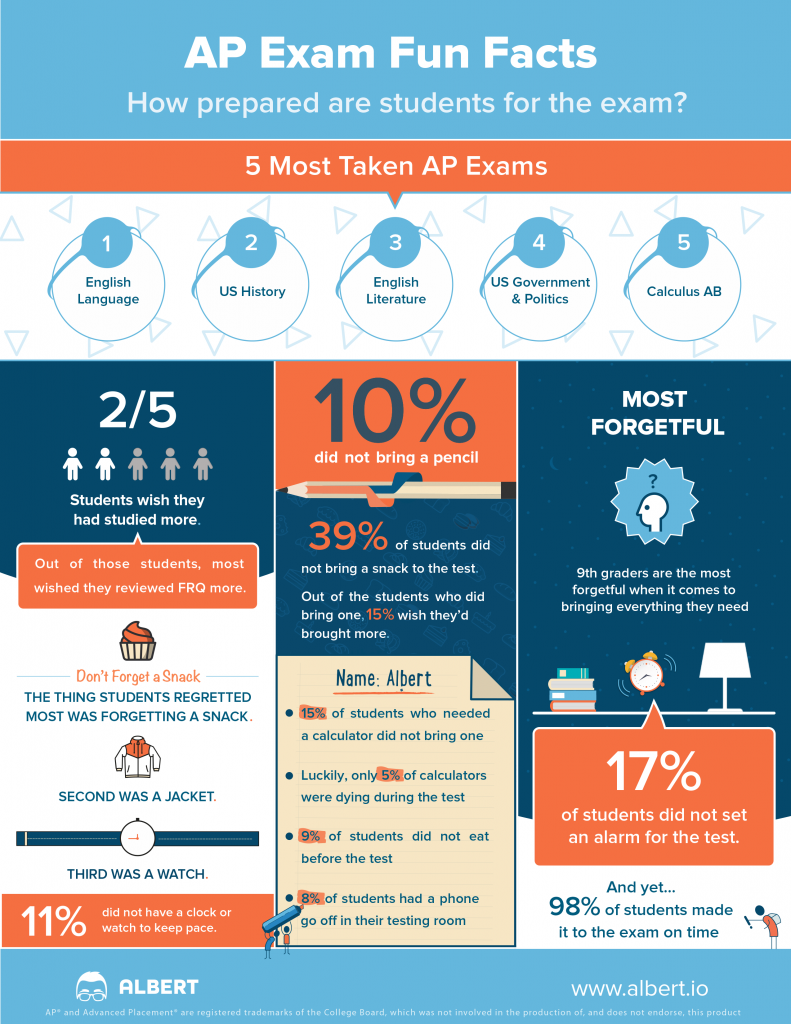The Value of APs and AP Exams
The end of April only means two things: the end of those delicious egg-shaped Reese’s Peanut Butter Cups, and the beginning of the most dreaded academic time of year — AP exams. You have probably heard many rumors of AP exams, but in this blog post, we will put some rumors to rest and give you the scoop on what an AP class and exam means to you, Admissions Officers, and how to be smart about which APs you take.
If by the time you are applying to colleges in the fall, and you’ve taken many APs in school, but continued to self-study for AP exams over summer(s), I’ll give you one giant hint: You did something wrong. Yeah, you could potentially get course credit if you score a 4+ on the exam, but from an admissions perspective, you just didn’t spend your time wisely.
Why do I need AP Exams for College?
Admissions Officers mainly will first look at your transcript and calculate your GPA based on just the transcript, so self-studying for APs won’t help your GPA. If you don’t report your AP scores, or they get the score after your application has been evaluated, then they don’t take that into account at all in the admissions process. Mainly they want to know, did you take a rigorous class? If so, how did you perform?
In fact, mostly AP exams would be used by an Admissions Officer as only an additional data point. Let’s say you took AP Biology, and one semester you got an A while another semester you got a B. You take the AP exam and score a 4. In this case, this 4 backs up the B data point and not the A data point. Whereas if you scored a 5, that data point would back up the A data point. All-in-all, if you aren’t confident you can get an A in an AP class, then it might not be the right class to take.
What do Colleges Look for in my AP Tests?
An Admissions Officer evaluates your application for many different factors. And academic performance and rigor is just one of those factors (14%) of the application. If you only self-study for AP exams, and don’t do anything else of substance in your free time. Tthen you may only be hurting yourself. Especially if we’re talking about schools at a high level of academic rigor such as Stanford, Harvard, Yale, and Brown. Yes, these schools are “liberal arts” schools, so they want you to be a well-rounded thinker, learner, and doer.
So, before you put a lot of pressure on yourself (or parents if you’re reading this — your kids) to take AP exams or classes, ask yourself two important questions: “Am I generally interested in this subject?” and, “Can I get an A?” If the answer to both those questions is yes, then go for it! If the answer is no, think long and hard about why you’re doing it. And what else you could do with that free time if you took a little less of a rigorous class. In fact, if you’re thinking of self-studying for an AP exam, stop and ask yourself the same questions. And contemplate what you could do (more effectively) with all of that free time. You can find your passion.
Want to know if you’re taking the right APs? Curious what else you could (and should) be doing with your time? Contact ReadyEdgeGo by sending us an email at hello@mediumspringgreen-tapir-518604.hostingersite.com. Image provided by Albert.io










